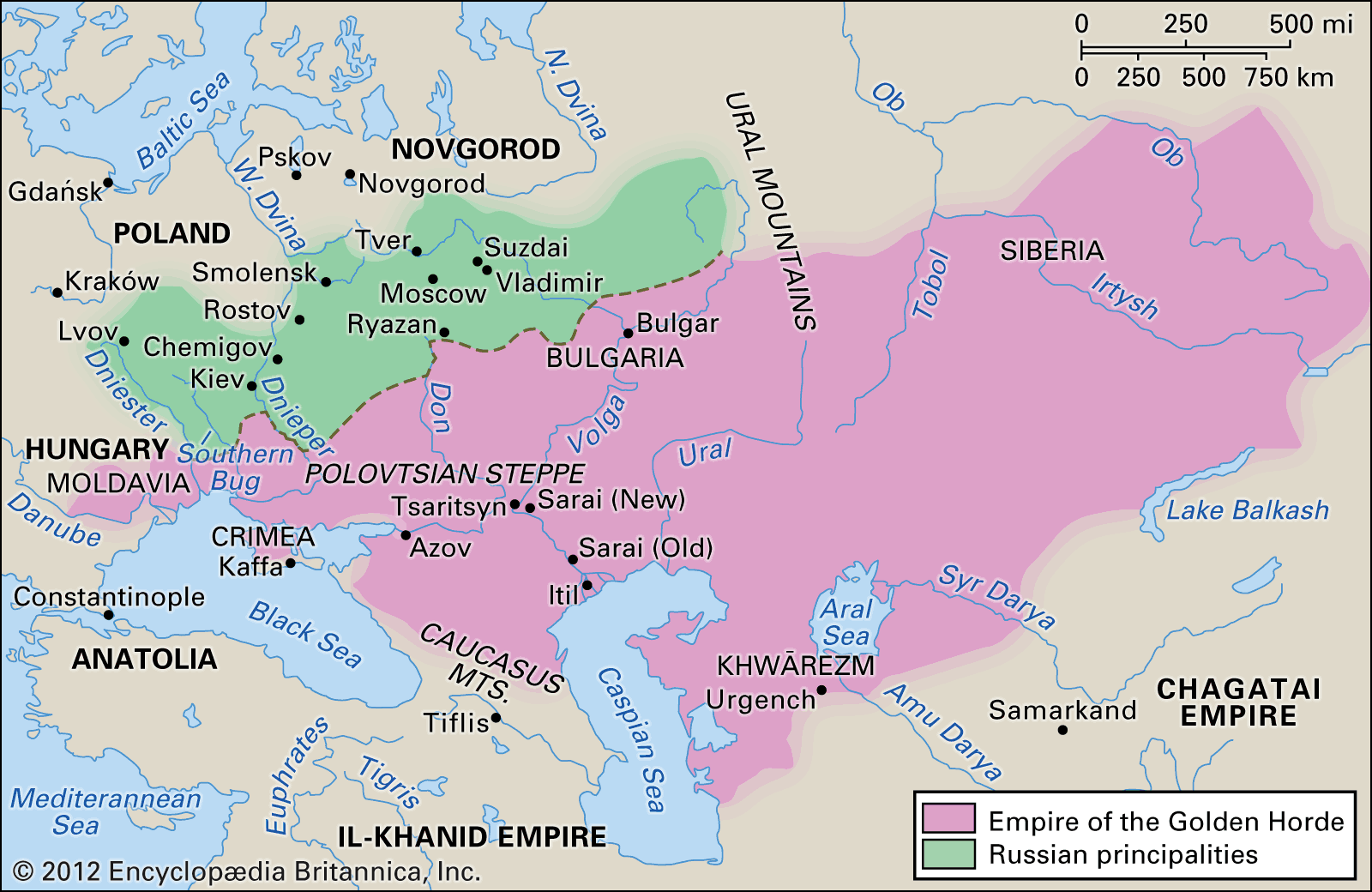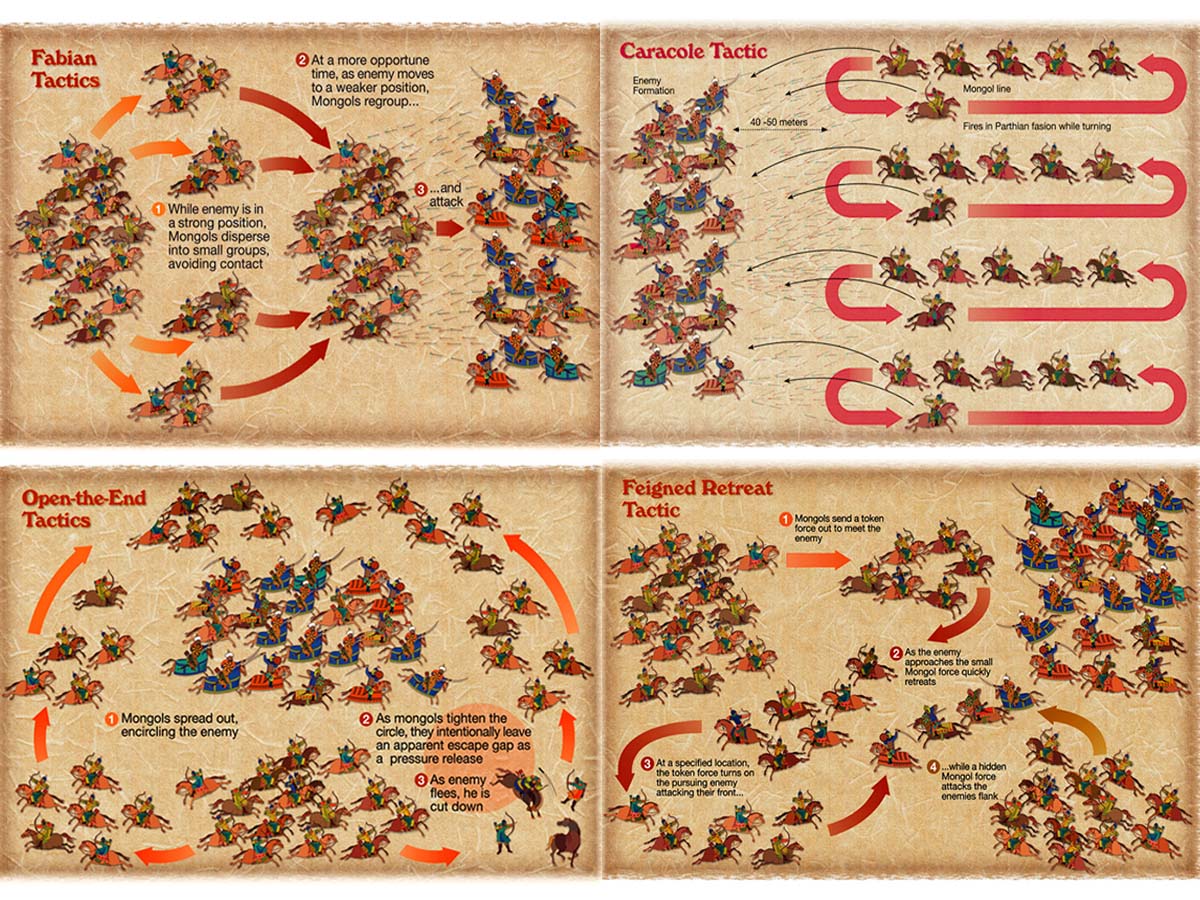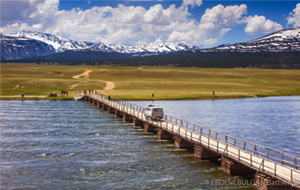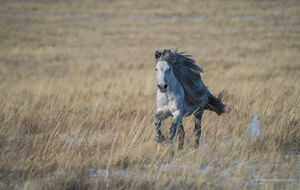
Since we have already explored how a Mongol king transformed China in the 13th – 14th century through another article, I would like to delve into a couple of points on how another Mongol king, who also happened to be legendary Genghis Khan’s grandson, influenced Russia over the same period of time.
War Triggered Unity for the Rus
Mongolian golden horde, closest family members of Genghis Khan, first got acquainted with then Kievan Rus in the 1220s. “By 1240, the Mongols were effectively, the masters of European Russia. They would remain so for the next two and a half centuries (1240-1480)”.* Batu Khan succeeded his father Juchi as an emperor of the Golden Horde and expanded it with Russian principalities from 1240.
Before Mongols came, Kievan Rus had consisted of a number of tribal groups, each of which led by independent princes. So, Batu Khan’s conquest and his consequent demands from the princes to be submitted to him and to pay taxes regularly must have triggered the previously independent princes to seek unity in fighting their new lord. Apparently, speaking same Slavic language was a huge motivation for them to be united as well.
“Without the Mongols, a Russian state or empire might eventually have been formed out of the disparate pieces into which Kievan civilization had separated, but it is at least equally possible that the Russians would have remained divided and would have been absorbed by their powerful neighbors: Poles, Lithuanians, and others”.
Mongols Made the Rus Refine Their Military Tactics
A Russian-born American historian George “Vernadsky presented the Mongol conquest of Russia as the pivotal development in the course of Russian history. He argued, [it was] unfair or at least imprecise to dismiss the Mongols as wild nomads, given their organizational achievements and exposure to higher civilizations. The Mongols played a positive role in the evolution of the Russia state”.
While the Kievan princes were oppressing their peasants to pay more tax for them, Mongol Khans were conquering civilizations which were much superior to the Kievan Rus in terms of their trade and economic development as well as military tactics. Therefore, many researchers believe that the Rus adopted some of their military tactics from the Mongols who must have had refined their own tactics from battle to battle. For instance, at the core of the Mongol army was the unit organization which could break down into tens, hundreds, thousands and so on, whenever necessary, for easier communication and swifter actions etc.

Although “for Russia, the process of birth and conquest has taken longer, beginning with the triumph of Moscow’s Prince Dmitrii Donskoi over the Mongols at Kulikovo Field in 1380”, ironically, what Mongols brought in to the Rus could have been the main reasons why they were defeated by the Rus.
However, reciprocally, in the 20th century, Russians brought in much to be thankful for to Mongolia centuries after Batu Khan. Discover Mongolia Travel team will reveal some of that positivity to our readers through one of our upcoming articles.
So, stay tuned!







































